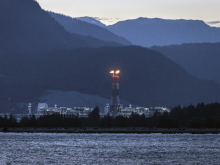Mayor Zohran Mamdani opened his administration Thursday with an explicit pledge to govern the nation’s largest city as a democratic socialist, saying he would not soften his politics as he ushered in the “new era.”
“I was elected as a democratic socialist, and I will govern as a democratic socialist,” Mamdani said in his inaugural address on New Year’s Day before a crowd of thousands gathered at City Hall and at a block party down the Canyon of Heroes.










